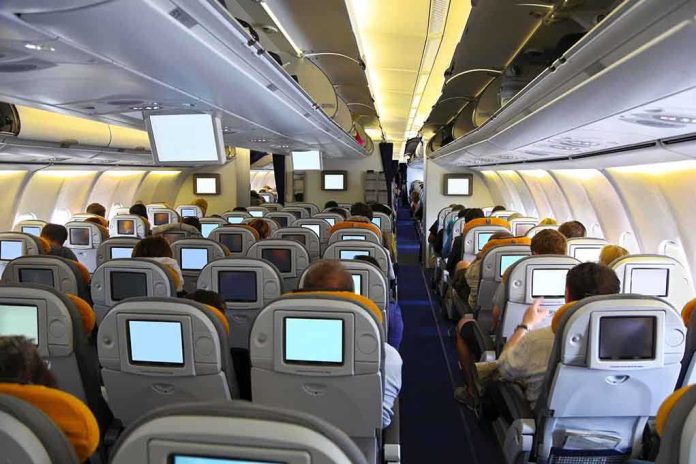
A pharmacist’s urgent warning reveals that millions of travelers are unknowingly putting their lives at risk by taking sleeping pills before flights, exposing a dangerous practice that could lead to blood clots, respiratory failure, and death.
Story Highlights
- Pharmacist Seema Khatri warns against consuming sleeping pills before air travel
- Sedatives increase risks of deep vein thrombosis, respiratory depression, and emergency unresponsiveness
- Medical experts cite prolonged immobility and cabin pressure changes as dangerous factors
- Airlines report increased in-flight medical emergencies linked to sedative use
Expert Issues Critical Travel Safety Warning
Pharmacist Seema Khatri has issued a stark warning to air travelers about a common but dangerous practice. Her advisory specifically targets the consumption of sleeping pills before boarding flights, citing serious health risks that many passengers remain unaware of. The warning comes amid growing concerns about in-flight medical emergencies and highlights how routine travel decisions can have life-threatening consequences for unsuspecting passengers.
Medical professionals have documented numerous cases where passengers who consumed sedatives experienced severe complications during flights. The unique environment of commercial aircraft creates conditions that amplify the dangers of sleeping medications. Low cabin humidity, reduced oxygen levels, and prolonged periods of immobility combine to create a perfect storm for medical emergencies among sedated passengers.
Life-Threatening Risks Hidden in Plain Sight
Deep vein thrombosis represents one of the most serious dangers associated with pre-flight sedative use. When passengers take sleeping pills and remain immobile for hours, blood circulation slows dramatically, allowing dangerous clots to form in leg veins. These clots can travel to the lungs, causing potentially fatal pulmonary embolisms that cabin crews are often unprepared to handle effectively during flight.
Respiratory depression poses another critical threat that sedative users face at altitude. Sleeping pills naturally suppress breathing rates, and when combined with the reduced oxygen levels in aircraft cabins, this effect becomes magnified. Passengers may experience dangerously slow or shallow breathing patterns that can progress to complete respiratory failure without immediate medical intervention that may not be available mid-flight.
Government Overreach Ignores Personal Health Freedom
The medical establishment’s warnings highlight yet another area where individual Americans must take responsibility for their own health decisions rather than relying on government bureaucrats. While regulatory bodies like the FAA focus on countless meaningless restrictions about carry-on liquids and shoe removal, they’ve failed to adequately address this genuine safety concern that affects millions of travelers annually.
Airlines face mounting pressure to address sedative-related medical emergencies, yet many continue prioritizing profits over passenger safety education. The absence of clear pre-flight warnings about medication risks demonstrates how corporate interests often overshadow common-sense health protections. Travelers must rely on independent medical experts like Khatri to learn about dangers that should be prominently disclosed during the booking process.
Sources:
Pharmacist warns against sleeping pills before flights



